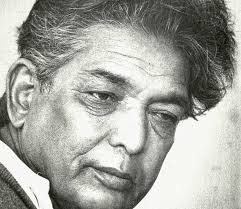This legendary tale of love, written in the 16th century by Warris Shah in poetry. Chetan Anand chose to make this film in that form only. He selected the great poet of that time Kaifi Azmi. He created lines not only for the leads, played by Raaj Kumar and Priya Rajvansh but for the rest of the ensemble cast which included Pran, Prithviraj Kapoor, Ajit, Jayant, etc.
A unique film told in verse, written by Kaifi Azmi and directed by Chetan Anand. Poetry on celluloid never attempted before and after. The film has immortal music by Madan Mohan, another beauty of the film was its photography.inspired by the paintings of Sobha Singh, a legendary painter from Punjab, the imagery of the film is wonderful. thanks to the cinematic genius of cinematographer Jal Mistry.
Told in a Romeo and Juliet style, the story concerns relative differences that rip apart childhood darlings Heer and Deedho, so Heer goes away to exist an unspecified life as a laborer.
Priya Rajvansh and Raaj Kumar both gave good performances in their respective parts as the title characters Heer and Raanja, Beside them, there are fine performances to be had from Pran, Ajit and Prithviraj Kapoor in their respective parts as Chhote Chaudhary, Saida, and the King.
The film released on 19th June 1970 was a moderate success in the Box office.
The film starts with an introductory Nazm by Kaifi Azmi, recited by Films Director "Chetan Anand :
"Dard Punjab ke seene se chura laya Hun Chand tukde tere waris ke utha laya hun Aag meri na sahi iska dhuan mera hai Heer Ranjha ki kahani hai bayan mera hai ....
Chetan Anand screen-tested Zeenat Aman for a supporting role in the film. But during the audition, Zeenat's Urdu was very terrible. Chetan ended up not signing Zeenat. It was the first time that Chetan Anand worked with Raj Kumar, who was known for his dialogue delivery
Songs of Heer Ranjha
| Song | Singer (s) |
|---|---|
| Do Dil Toote Do Dil Haare | Lata Mangeshkar |
| Milo Na Tum To | Lata Mangeshkar |
| Nache Ang Ve | Jagjit Kaur, Shamshad Begum |
| Doli Chadte Heer | Lata Mangeshkar |
| Meri Duniya Mein Tum Aayi | Lata Mangeshkar, Mohammed Rafi |
| Tere Kooche Mein Tera Diwana | Mohammed Rafi |
| Ye Duniya Yeh Mehfil | Mohammed Rafi |
Song of Heer Ranjha 1970
Song of Heer Ranjha 1970
Song of Heer Ranjha 1970
Song of Heer Ranjha 1970
Song of Heer Ranjha 1970
Song of Heer Ranjha 1970








